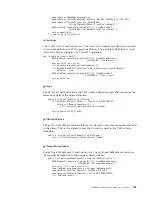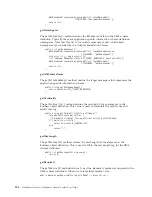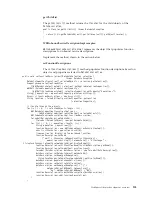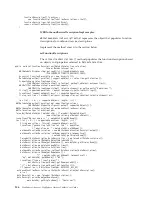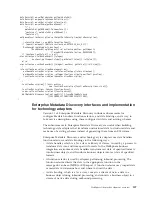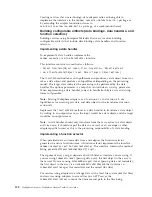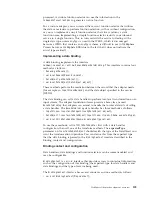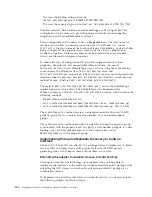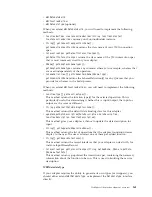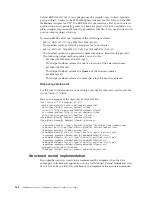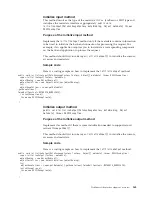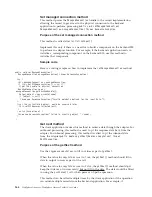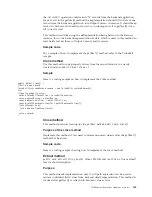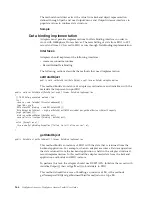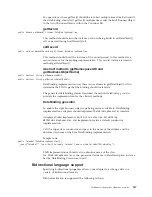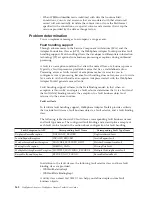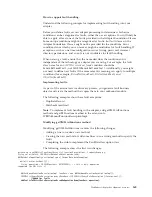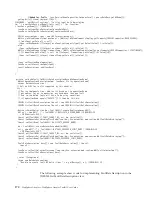
For operations where getNext() should be invoked multiple times like RetrieveAll,
the databinding should call getNext() multiple times add the built BusinessObject
to the list of BusinessObjects within the Container BO.
getRecord
public Record getRecord() throws DataBindingException
This method should return the instance of record being build in setDataObject()
call or passed through setRecord() call.
setRecord
public void setRecord(Record arg0) throws DataBindingException
This method should hold the instance of the record passed to this method as a
record instance for the binding implementation. This record instance is used in
method getDataObject().
Abstract methods (getNamespaceURI and
getBusinessObjectName)
public abstract String getNamespaceURI();
public abstract String getBusinessObjectName();
DataBinding implementation uses these two methods in getDataObject() call to
determine the SDO type that the binding should instantiate.
The generated databinding classes described the section
DataBinding generator
provide the implementation for the abstract methods.
DataBinding generator
To enable the right business object type being made available to DataBinding
implementations adapters should implement
DataBindingGenerator
interface.
Adapters should implement
com.ibm.j2ca.extension.databinding
,
WBIDataBindingGenerator
and implement provide a default constructor
implementation.
Call the super class constructor and pass in the name of the adapter and the
absolute classname of the base DataBinding implementation.
Sample code:
public TwineBallDataBindingGenerator() {
super("TwineBall", "com.ibm.j2ca.sample.twineball.emd.runtime.TwineBallDataBinding");
}
EMD implementations should set the absolute name of the class
for
DataBindingGenerator
as the generator classname in DataDescription instance.
Set the DataBinding Classname to null.
Bidirectional language support
Specifying bidirectional properties allows your adapter to exchange data in a
variety of bidirectional formats.
Bidi normalization is supported the following fashion:
WebSphere Adapter development overview
167
Summary of Contents for WebSphere Adapter Toolkit
Page 2: ......
Page 6: ...iv WebSphere Adapters WebSphere Adapter Toolkit User Guide...
Page 220: ...214 WebSphere Adapters WebSphere Adapter Toolkit User Guide...
Page 224: ...218 WebSphere Adapters WebSphere Adapter Toolkit User Guide...
Page 225: ......
Page 226: ...Printed in USA...

